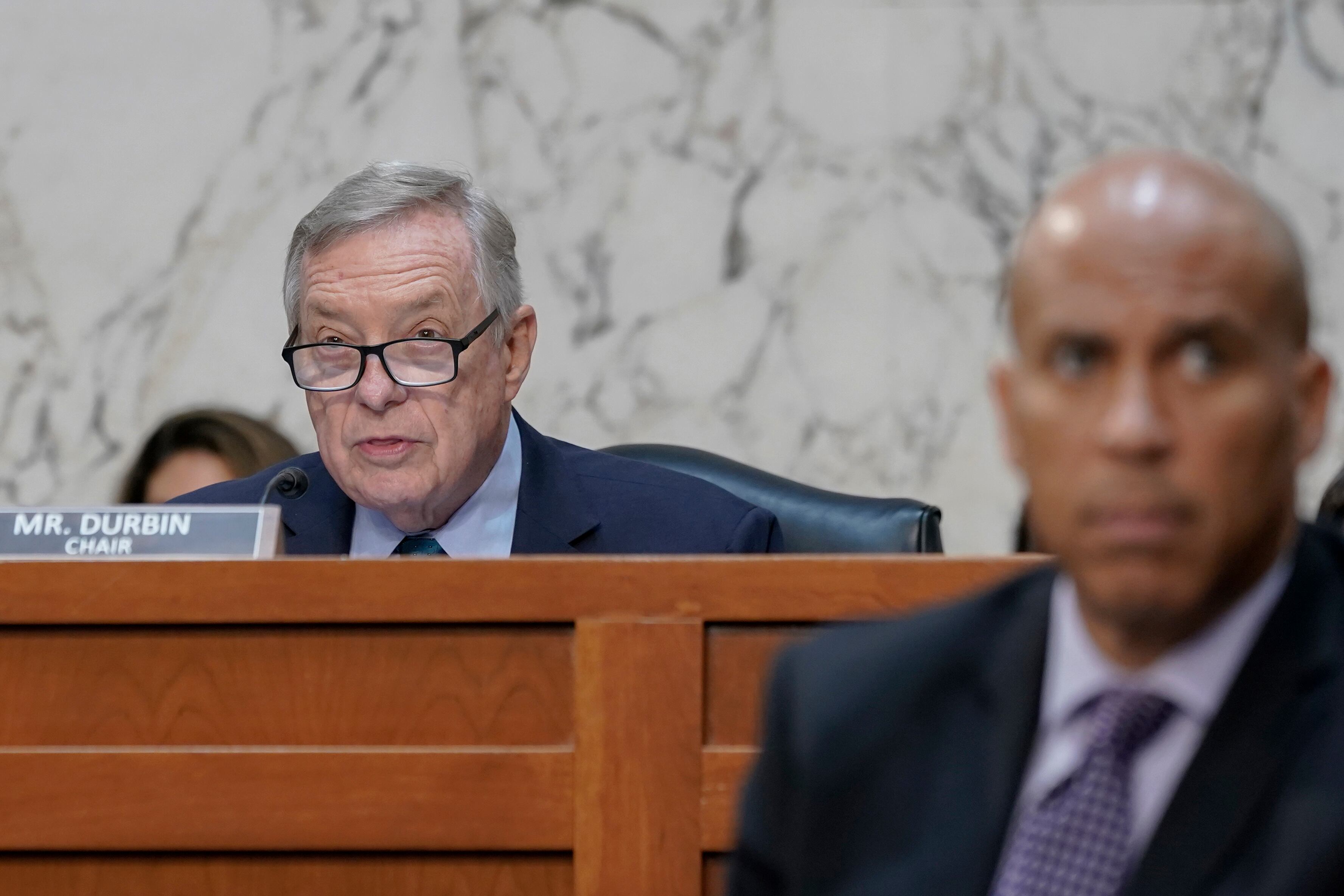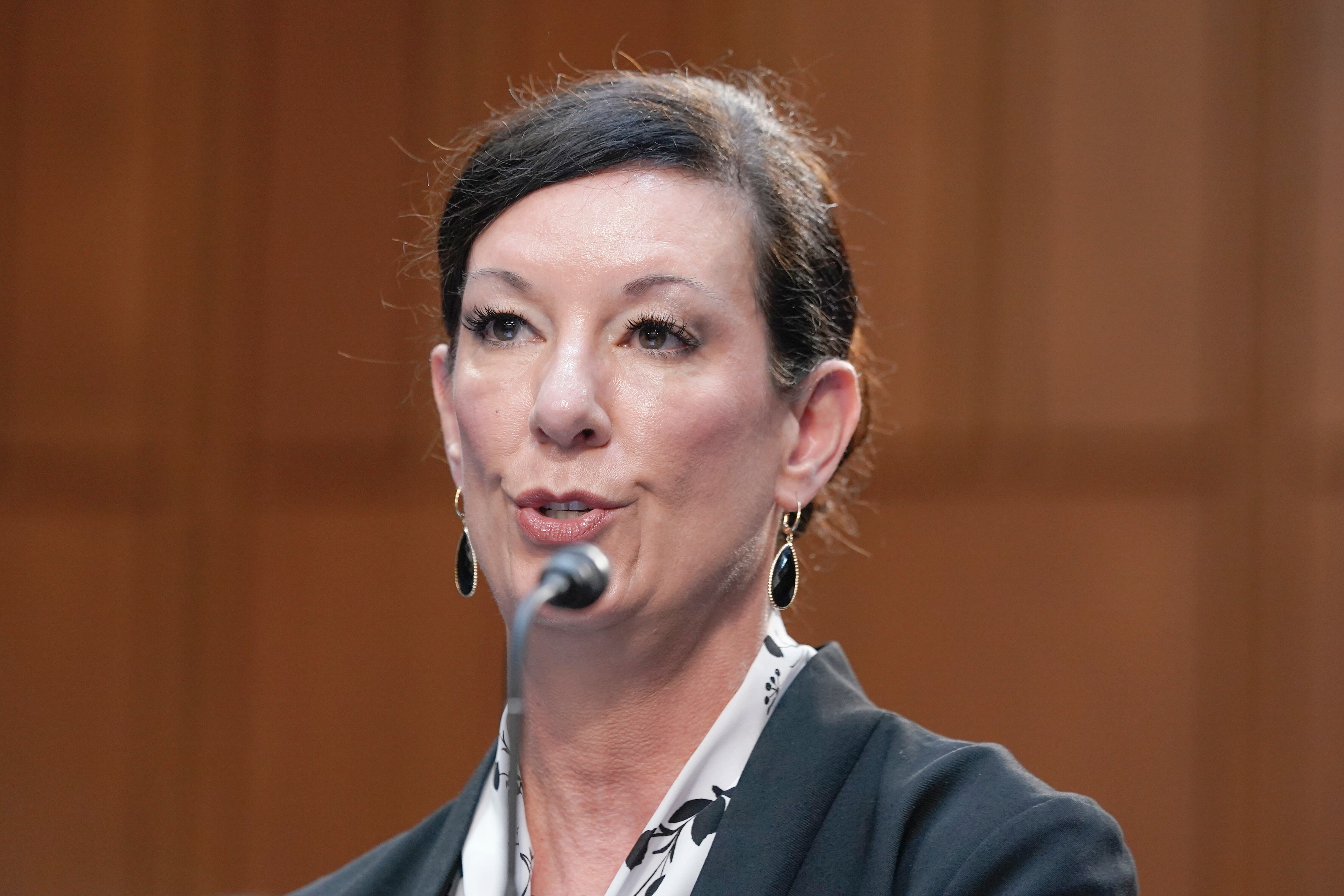The director of the federal Bureau of Prisons was scolded Wednesday by members of the Senate Judiciary Committee who say her lack of transparency is hampering their ability to help fix the agency, which has long been plagued by staffing shortages, chronic violence and other problems.
Senators complained that Colette Peters appears to have reneged on promises she made when she took the job last year that she’d be candid and open with lawmakers, and that “the buck stops” with her for turning the troubled agency around.
Sens. Tom Cotton, R-Ark. and Mike Lee, R-Utah, said Peters has forced them to wait more than a year for answers to written follow-up questions they sent her after she first appeared before the committee in September 2022, leaving them without information critical to fully understanding how the agency runs.
The clock is still ticking, Cotton and Lee said, trying to get Peters to commit to a firm deadline for responding. She declined, blaming the delay and uncertainty as to when answers would be ready on an ongoing Justice Department review process.
Peters also irked senators by claiming she couldn’t answer even the most basic questions about agency operations — like how many correctional officers are on staff — and by referring to notes and talking points on a tablet computer in front of her.
“Senators really take it personally when you don’t answer their questions,” Sen. Dick Durbin, D-Ill., the committee’s chairman, told Peters as he wrapped up the two-hour session. “More than almost any other thing that I would recommend I’d make that a high priority.”

The Bureau of Prisons, the Justice Department’s largest law enforcement agency with more than 30,000 employees, 158,000 inmates and an annual budget of about $8 billion, has been under increasing scrutiny from Congress amid myriad crises, many of them exposed by AP reporting.
They include rampant sexual abuse of prisoners by staff and other staff criminal conduct, escapes, high-profile violence and inmate deaths, chronic understaffing that has hampered emergency responses.
Despite the transparency tussles, Durbin said committee Democrats and Republicans alike came away from Peters’ testimony largely in agreement that the Bureau of Prisons “needs significantly more funding” for staffing and infrastructure needs, including a $2 billion maintenance backlog.
“Let’s see if that translates into a bipartisan request for appropriations to match with that,” Durbin said.
Peters, a reformer who previously ran Oregon’s state prison system, took charge of the federal Bureau of Prisons in August 2022. She replaced Michael Carvajal, a Trump administration holdover who clashed with Congress and upset staff with claims that dwindling staffing levels weren’t a concern.
Problematic prisons
Peters began Wednesday’s testimony by highlighting steps she’s taken to fix the agency, including overhauling problematic prisons, beefing up the internal affairs office that investigates employee misconduct and changing the agency’s mission to emphasize “principles of normalcy and humanity and core values that emphasize accountability, integrity, respect and compassion.”
Sen. Jon Ossoff, D-Ga., who led a subcommittee investigation into the sexual abuse of female prisoners and spearheaded prison reform legislation, acknowledged Peters’ reputation as a reformer and commitment to change. But, he said: “You’ve now been in the post for about a year and Congress expects results.”
And answers. Asked by Cotton how many correctional officers positions are filled amid a staffing crisis that’s led to mandatory double shifts and cooks, teachers and nurses guarding inmates, Peters said: “I don’t have that number in front of me.”
Cotton, citing statistics he obtained, told Peters the answer was 12,731, meaning at least 7,700 budgeted correctional officer positions are not filled. That’s more vacancies than when AP reported on the issue in 2021.
At another point, Sen. Lindsey Graham, R-S.C., became irritated when Peters failed to provide specifics about steps the agency is taking to thwart prisoners from using contraband phones to orchestrate drug deals.
“No, no, no, no, no,” Graham said, interrupting her.
And then there were the questions asked long ago that still haven’t been addressed.
Lee told Peters he submitted a “short list of questions” to her after she first testified before the committee, on Sept. 29, 2022, and has yet to get a response.
“These are not difficult questions,” Lee said.
Lee noted that witnesses testifying before the committee usually respond to written follow-ups within a week or so. He reminded Peters that, at that first hearing, she’d acknowledged it was important to answer the committee’s questions in a timely fashion.
Lee suggested giving her until the end of the month to respond. Cotton offered an Oct. 13 deadline, but Peters said she wasn’t sure she could meet that, either.
“I’m disappointed that those questions have not yet been answered,” Peters said. “We have been working on them diligently over the last year. It has been a lot of back and forth with the (Justice Department). I was hoping that they would be cleared this week, they’re not yet.”
In Other News




